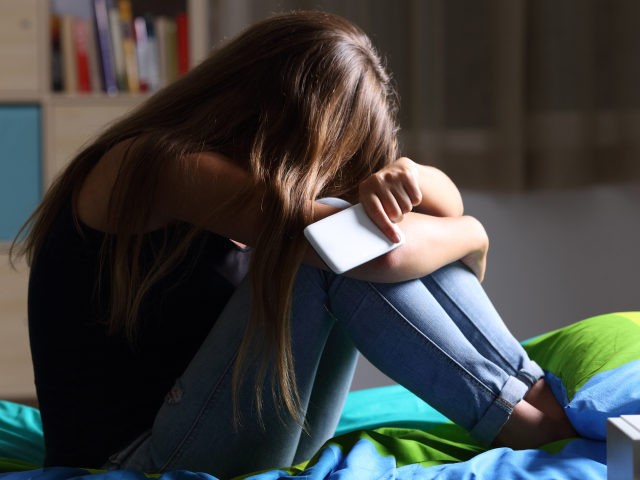A recent study claims that almost half of all British teenagers view themselves as addicted to social media, reigniting debates on the impact of online platforms such as Facebook, Instagram, TikTok, and Twitter on younger users.
The Guardian reports that The Millennium Cohort study, spearheaded by Dr. Amy Orben’s team at the University of Cambridge, has highlighted a worrying statistic: approximately 48 percent of British teenagers feel they are addicted to social media. This study, tracking about 19,000 people born in the UK between 2000 and 2002, included a survey about social media usage when the participants were aged 16-18.
Out of the 7,000 teenagers who responded, a worrying number agreed with the statement, “I think I am addicted to social media,” with 57 percent of girls and 37 percent of boys agreeing.
Georgia Turner, a graduate student leading the analysis, stated: “We’re not saying the people who say they feel addicted are addicted,” she clarified. “Self-perceived social media addiction is not [necessarily] the same as drug addiction. But it’s not a nice feeling to feel you don’t have agency over your own behaviour. It’s quite striking that so many people feel like that and it can’t be that good.”
Dr. Michael Rich, the Director of the Digital Wellness Lab at Boston Children’s Hospital, also provided data that seemed to back up The Millennium Cohort study. Rich said that in his clinical experience, a substantial number of young people are dealing with “problematic interactive media use” (PIMU), which includes not just social media but also gaming, pornography, and extensive digital content consumption.
According to Dr. Rich, PIMU often correlates with underlying psychological issues such as ADHD, autism spectrum disorders, anxiety, depression, or other mood disorders and is used as a coping mechanism. However, Rich discouraged the word “addiction,” stating that it could be stigmatizing, and because in the modern world, the internet is integral to everyday life, completely avoiding its use is not only unrealistic but often unnecessary.
The study comes at an interesting time as several U.S. states are currently suing Mark Zuckerberg’s Meta, accusing the company’s Facebook and Instagram platforms of contributing to a youth mental health crisis. Dr. Andres Roman-Urrestarazu, a psychiatrist at the University of Cambridge and a UK lead for the Bootstrap pan-European trial on problematic internet use, highlighted the implications of these findings, stating: “Social media and major tech companies remain largely unregulated in the way they engage with people.”
Roman-Urrestarazu further raised concerns about the algorithms used by these platforms, adding, “Algorithms that are designed to increase sales tend to be particularly noxious and tend to produce these types of products that put vulnerable people at danger. We need to push for algorithmic transparency.”
Read more at the Guardian here.
Lucas Nolan is a reporter for Breitbart News covering issues of free speech and online censorship.


COMMENTS
Please let us know if you're having issues with commenting.